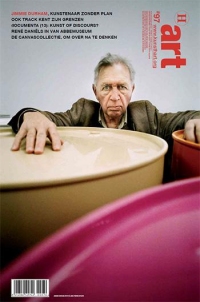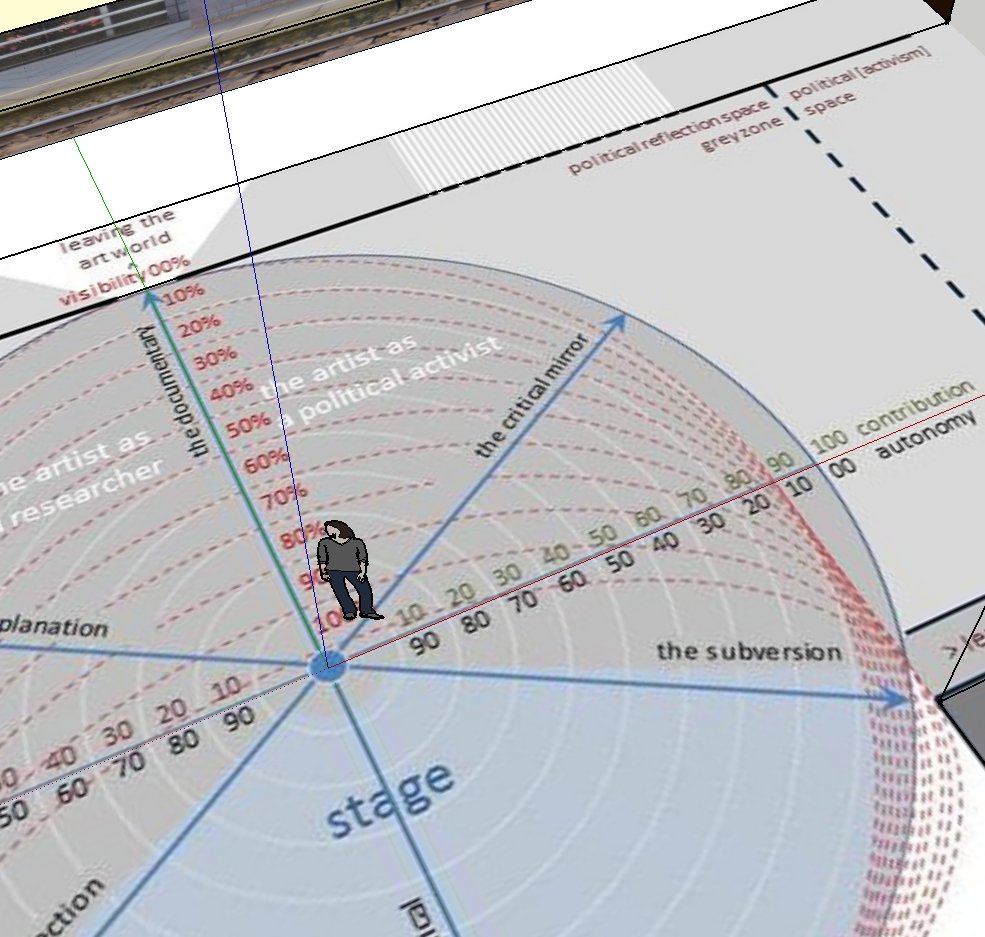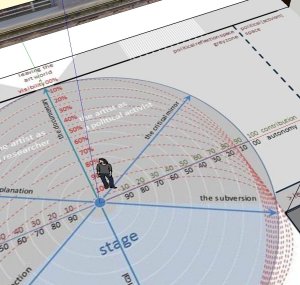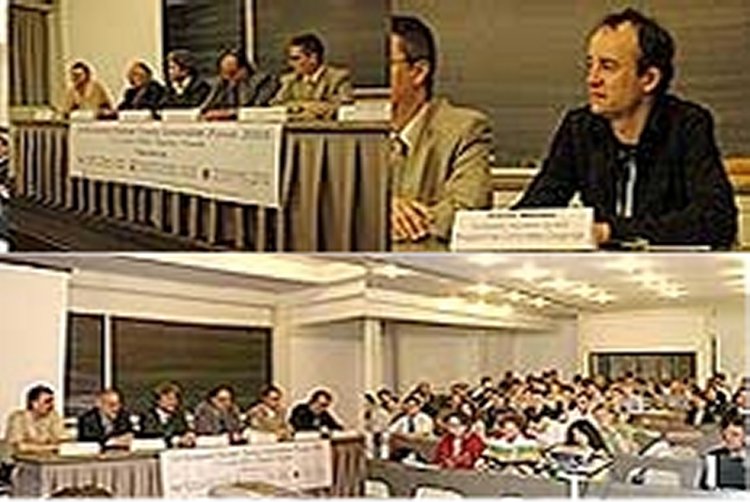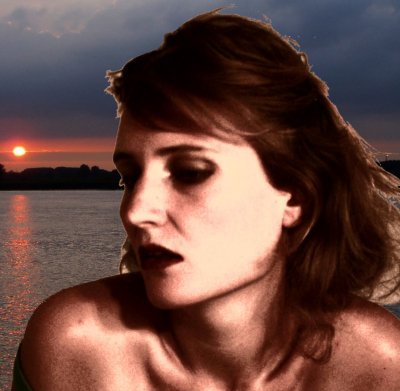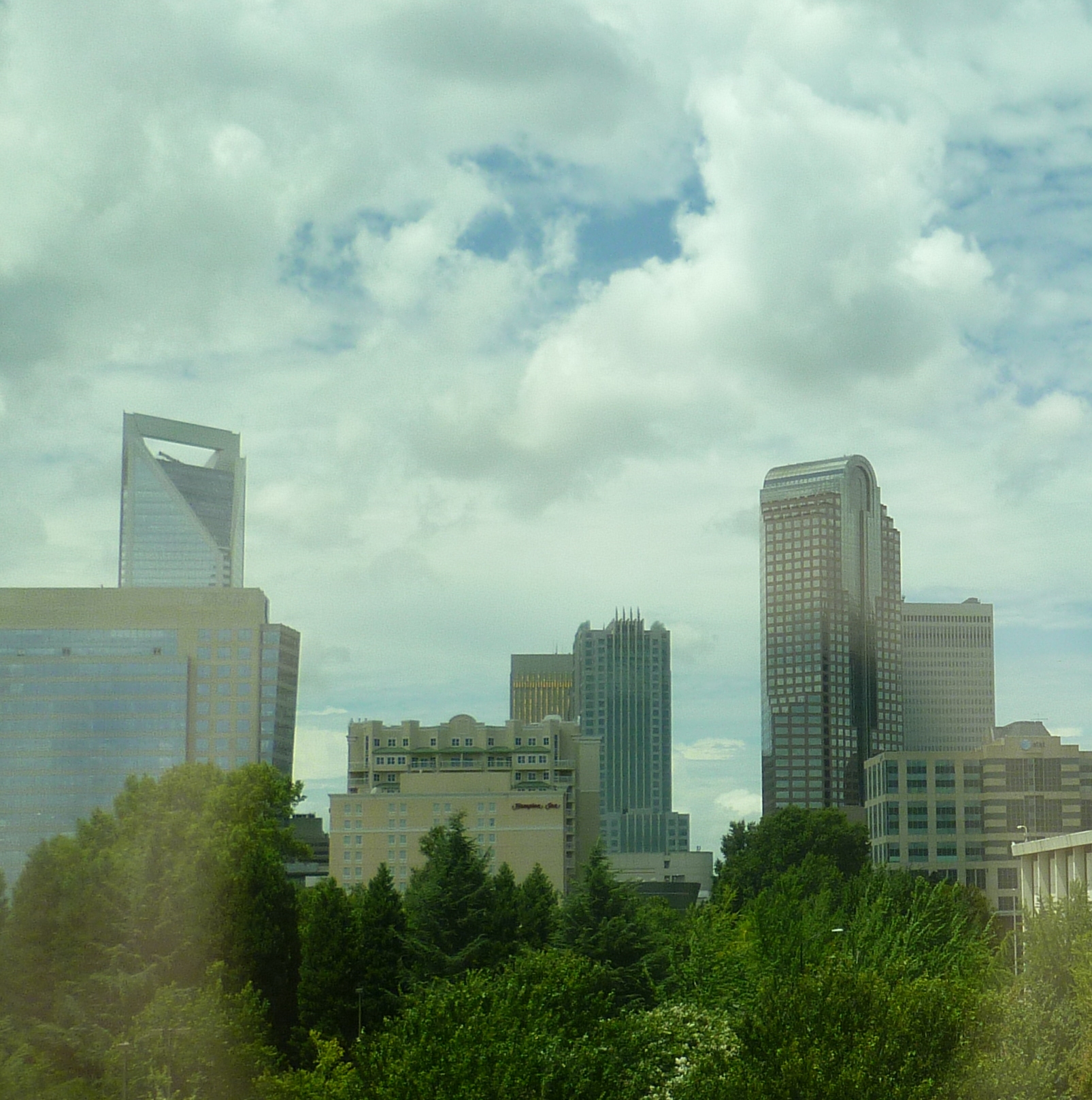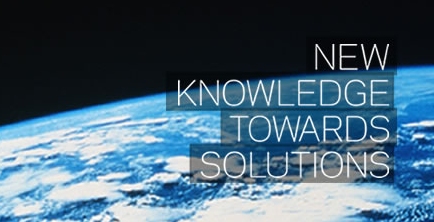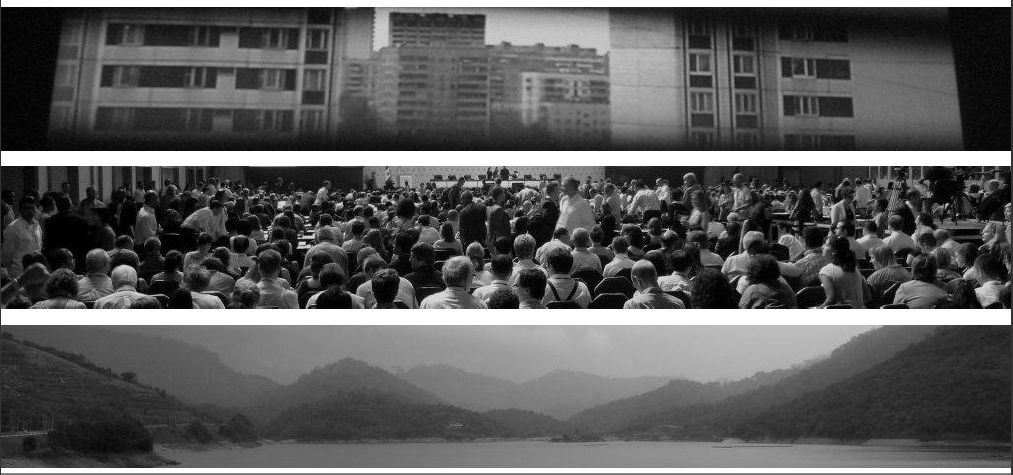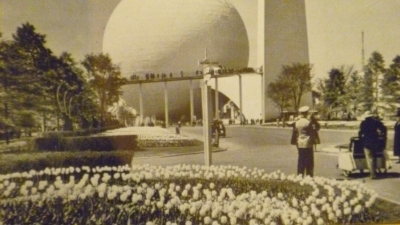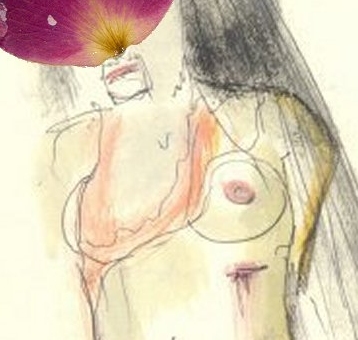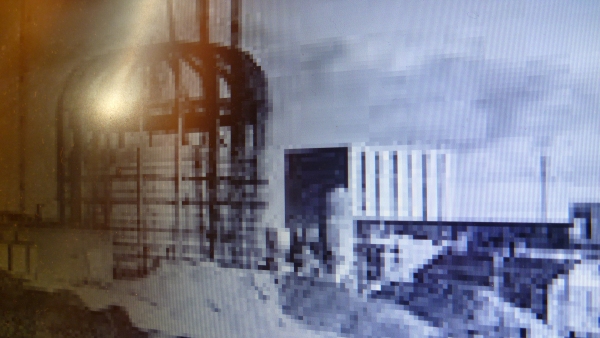“Kunst kan slaan en zalven, maar eigenlijk willen we er allemaal stiekem door getroost worden. De gedachte dat kunst geen politieke of wetenschappelijke waarheid kan uitdrukken is daarbij dan al een goed begin.”
De kneedbare kunstenaar (Zoals verschenen in <H>ART Magazine #97)
In juni komt de wereld samen in Rio de Janeiro voor een nieuwe politieke top rond duurzame ontwikkeling. Tijdens dat grootste politieke evenement van de laatste tien jaar komen politici, wetenschappers en activisten hun mening geven over hoe het met onze wereld gesteld is. Er worden geen kunstenaars uitgenodigd. Dat is misschien vreemd, want vandaag is hun mening over de staat van de planeet en de maatschappij belangrijker dan ooit. De politiek geëngageerde kunstenaars gaan echter niet naar Rio, maar naar Berlijn. De Biënnale daar hoopt expliciet dat de acties van de uitgenodigde kunstenaars ter plaatse niet alleen kunst opleveren, maar ook een ‘politieke waarheid’ zouden onthullen en mee ‘verandering’ inzetten[1]. Geen beelden maar daden?
Die vraag naar politieke waarheid in kunst vervoegt vandaag die andere heikele vraag rond wetenschappelijke waarheid in het kunstdebat. De discussie rond het doctoraat in de kunsten gaat nog steeds over de vraag of de kunstenaar als onderzoeker ‘objectief’ de methode, waarde en ‘resultaten’ van zijn onderzoek kan aantonen via het werk alleen of, indien niet, het werk ook gepaard moet gaan met duiding als deel van het doctoraat. Geen beelden maar woorden?
Ik vind het prima dat de kunstenaar uitgenodigd wordt om politieke en wetenschappelijke waarheden aan te brengen. Hij kan dan namelijk tonen dat zoiets onmogelijk is. En als hij wil kan hij tegelijk de politicus en de wetenschapper op hun eigen beperkingen in die zin wijzen: via kunst, met inbegrip van woorden en daden… Over dit soort kunst gaat dit stuk. De kunstenaar is niet meetbaar maar wel kneedbaar, en dat heeft hij zelf in de hand.
Het comfort van de polarisatie
Globalisering, milieuvervuiling, klimaatverandering, economische crisis, terrorismedreiging en religieuze conflicten zetten vandaag de politieke agenda, en in die kwesties staat de geloofwaardigheid van de politicus en de wetenschapper met betrekking tot hun maatschappelijke rol en verantwoordelijkheid onder druk. De wetenschapper haalt zijn geloofwaardigheid uit de claim dat hij autonoom kan handelen omdat hij objectief is. De politicus daarentegen haalt zijn geloofwaardigheid uit de claim dat hij autonoom mag handelen omdat hij verkozen is. Maar het publieke en politieke discours waarin de wetenschapper en de politicus positie innemen rond die kwesties is vandaag vooral populistisch en daardoor polariserend. In het licht (of in de duisternis) van de onzekerheid en complexiteit die deze kwesties kenmerken raakt het wetenschappelijke discours meestal niet voorbij discussies rond conflicting truths, terwijl het politieke steeds weer terugvalt op stellingnames tussen conflicting identities. Zowel in wetenschappelijke als in politieke argumentaties leiden strategische vereenvoudigingen van onzekerheid en complexiteit tot polarisaties waarin het handhaven van de eigen comfortzone belangrijker lijkt dan een toenadering met het oog op consensus.
De kunst vooruit
Deze tekst heeft niet de bedoeling de maatschappelijke rol en verantwoordelijkheid van de wetenschapper en de politicus te vergelijken met die van de kunstenaar, om de simpele reden dat geloofwaardigheid geen sleutelwoord is voor de hedendaagse kunstenaar. De kunstenaar is niet verkozen, hoeft niet objectief te zijn en heeft ook niets te bewijzen. Waarom dan toch een reflectie vanuit de kunst in de richting van wetenschap en politiek? Een gemeenschappelijk kenmerk van hun maatschappelijk functioneren is dat ze alle drie een appel doen op de buitenwereld in de manier waarop ze dwingende uitspraken doen over de sociale realiteit; dwingend omdat ze van hun publiek verwachten dat het met die uitspraken rekening houdt. Daarvan hangt voor elk van hen hun bestaansreden en ook hun erkenning af. De kunst is echter als enige van de drie doorheen de moderne geschiedenis haar eigen geloofwaardigheid beginnen onderzoeken. Het historische verhaal van de kunst vanaf het modernisme tot vandaag kan namelijk gezien worden als een gradueel proces van kritische zelfreflectie. De kunst heeft zelf haar eigen methode in vraag gesteld en daarmee ook tot het uiterste haar eigen identiteit ondermijnd. Noch de verlicht-moderne wetenschap noch de verlicht-moderne politiek heeft tot vandaag een gelijkaardig zelfkritisch proces georganiseerd.
Reflexiviteit als activisme
Men kan aanbrengen dat er voor kunst veel minder op het spel staat dan voor politiek en wetenschap, en dat haar oefening in reflexiviteit daarom hoe dan ook ‘veilig’ was en nog steeds is. Dat is echter het punt niet. Wetenschap en politiek worden inderdaad uit zelfbescherming en in de hang naar publieke erkenning (voor de wetenschap ook vanuit de markt) in strategische stellingnames gedwongen. Maar tegelijk neemt vanuit maatschappijkritische hoek ook de druk toe op wetenschap en politiek om in de complexe wereld van vandaag hun strategische posities rond waarheid en identiteit te verlaten. Die kritiek vertrekt vanuit het idee dat complexe sociale fenomenen essentieel ‘ondefinieerbaar’ zijn en dat behalve in de wiskunde definities alleen maar reducerende metaforen zijn die op hun beurt vatbaar zijn voor misbruik. Als de nood hoog is moeten ook metaforen gedelibereerd worden.
De grijze en mistige implicatiezone waarin de wetenschapper en de politicus vandaag zou moeten binnentreden is die plaats waar ze als wetenschapper en politicus ook kunnen spreken over wat ze geloven maar niet kunnen bewijzen, vrezen maar niet kunnen hardmaken en hopen maar niet kunnen garanderen. Het is een plaats waar gezamenlijk ‘kritisch maar mededogend’ wetenschappelijke disciplines doorkruist worden en politieke stellingen ontmanteld. Die plaats is dwingend want ze impliceert transparantie, reflexiviteit en deliberatie. Maar net daardoor kan ze ook bevrijdend werken. En omdat men er geëngageerd kan doorkruisen en ontmantelen is die plaats dezelfde als diegene waarin de kunstenaar ‘vanuit de andere richting’ terecht komt als hij zich afvraagt hoe en wat zijn onderzoek en activisme kan bijdragen en of het dan nog wel kunst dan wel wetenschap of politiek is. Een reflectie over de manier waarop de hedendaagse kunstenaar zich vandaag in de maatschappij kan profileren als onderzoeker of politiek activist is daarom niet alleen interessant voor de kunstwereld zelf, maar ook voor die wetenschapper en politicus die zich geconfronteerd ziet met de onmogelijkheid om de bovengenoemde kwesties te reduceren tot een simpele ratio die meteen ook de eigen positie met betrekking tot waarheid en identiteit zou dienen. De ‘kritische spiegel’ die kunst zo de politiek en de wetenschap kan voorhouden is er één die wijst op het ambivalente van hun positie en het problematische van het strategisch misbruik daarvan. Het ophouden van deze spiegel is geen verantwoordelijkheid voor hedendaagse kunst, maar eerder een interessante en logische volgende stap in haar eigen reflexief onderzoek met betrekking tot haar rol als maatschappelijke actor. Met andere woorden: kunst ‘moet niets’, maar als ze zich nog wil bezighouden met activisme of onderzoek dan is de bovengeschetste stap noodzakelijk en onvermijdelijk. Reflexiviteit als activisme dus. De zelf georganiseerde implicatiezone fungeert daarbij ook als antichambre naar doordachte actie in de maatschappij. Deze actie vanuit de kunst zal echter steeds ook gelaten zijn, net omdat ze vertrekt vanuit het inzicht dat ze, in antwoord op het rationeel waarheids- en identiteitsdenken, als kunst enkel twijfel kan zaaien door zelf openlijk te twijfelen.
De nieuwe zakelijkheid
Maar vandaag zien we in de kunst dikwijls het omgekeerde gebeuren: in plaats van gezonde twijfel te zaaien over de beloftes en potenties van politiek en wetenschap eigenen meer en meer kunstenaars, op zoek naar erkenning in de overmaat en waan van de dag, zich het aura van activist of onderzoeker toe, en als ze gevraagd worden naar de sociale relevantie en beoogde politieke implicaties van hun werk schermen ze zich dikwijls af met de stelling dat ze kunstenaar zijn, en geen politicus of wetenschapper. Op zoek naar snelle erkenning in het gemediatiseerde politieke discours riskeert de kunstenaar daarbij terug te vallen op dezelfde stereotypen als die gebruikt door diegene die hij viseert. Het cynisch uitvergroten van deze stereotypen is daarbij van alle mogelijke ‘kritische houdingen’ alleszins de gemakkelijkste en, als ze dan nog in de vorm van spektakelkunst gepresenteerd wordt, ook nog eens de meest geschikte om publieke aandacht te trekken. Niet alleen vanuit de kunstkritiek en de academie maar zelfs vanuit de markt wordt er meer en meer een terughoudende en kritische houding aangenomen ten opzichte van cynische spektakelkunst of zelfgenoegzame shock art met een veelal oppervlakkige maatschappijkritische boodschap op basis van een dun idee. Men merkt dat steeds meer jonge kunstenaars in de ‘mature art world’ (zeg Europa & de VS) terugplooien op het maken van poëtisch werk en geen politieke standpunten meer willen innemen (uit angst om naïef gevonden te worden?) terwijl dat in de ‘emerging art world’ (vb China), als deel van hun politiek emancipatieproces, wel nog het geval is.
Kunst als onderzoek – onderzoek als kunst
Terwijl de (jonge) kunstenaar vandaag bij ons eerder aarzelt om zich te profileren als politiek activist blijft hij wel de attitude en het jargon van de wetenschapper overnemen. Hij profileert zich als onderzoeker en wil dat de maatschappij dat onderzoek ernstig neemt. Dat heeft onvermijdelijk gevolgen voor een formalisatie van de onderzoekspraktijk in de vorm van het doctoraat in de kunsten. Bij de beoordeling van dat doctoraat moeten de kunstenaar-onderzoeker en de beoordeler bereid zijn de onderzoeksmethode zo te bepalen dat ze mogelijkheid tot doordachte evaluatie toelaat. Dat betekent onvermijdelijk dat het niet volstaat om ‘het werk voor zich te laten spreken’, en dat de kunstenaar zich zal moeten engageren in het geven van duiding. En die duiding kan zondermeer kunstzinnig zijn, en illustratief voor de klassieke wetenschapper. Onderzoek als kunst dus, want aangezien de kunstenaar zich typisch wil uitdrukken en raken ‘zonder te verklaren’ kan een doctoraat in de kunsten niets anders impliceren dan dat de kunstenaar gaat voor het behalen van de graad van ‘doctor in de zelfbeschouwing’…
Kunst als activisme – activisme als kunst
Kan kunst dan het activisme redden? In New York en elders werden de indignados strategisch aan de kant gezet. Ze konden zich niet verweren omdat ze enkel ontevreden waren, en er prat op gingen dat ze geen stelling te verdedigen hadden. Het komen tot een gezamenlijk standpunt zou toch alleen maar weer hiërarchie en ellebogenwerk veroorzaken, en dat was net het doel van hun protest. Een bijzonder initiatief heeft daardoor een kans gemist. Vandaag staan de betogers niet meer op Wall Street, maar in de exporuimtes van de Biënnale van Berlijn. En dat vinden de technocraten, beursspeculanten en andere Cynical Executive Officers prima. Misschien kopen ze daar nog wel iets voor hun collectie.
Entering de kunstenaar-activist. Een trend in de kunst die nog dikwijls over het hoofd gezien wordt is die van de kunstenaar die meer en meer als publieke figuur op de voorgrond treedt. Als hij niet gedwongen wordt over zijn werk te praten wil hij dat blijkbaar wel spontaan doen, mét analyse van de staat van de wereld erbij. Dat is op zich geen slechte zaak, want hij zou nu samen met de ontevredenen confronterende gedachten kunnen formuleren. In plaats van polarisaties te versterken zouden ze samen in Berlijn én in Rio implicatiezones kunnen creëren waarin ze eerst met zichzelf in debat gaan en in tweede instantie de geviseerden uitnodigen. Activisme als kunst erkent dat er vandaag geen comfortzones meer zijn voor sociaal engagement. Het is nog niet te laat.
Tot slot
Kunst kan slaan en zalven, maar eigenlijk willen we er allemaal stiekem door getroost worden. De gedachte dat kunst geen politieke of wetenschappelijke waarheid kan uitdrukken is daarbij dan al een goed begin.
Gaston Meskens, 31 mei 2012
[1] Artur Żmijewski, 7th Berlin Biennale For Contemporary Politics, http://www.berlinbiennale.de/blog/

